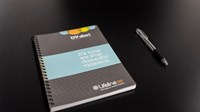It’s Disability Pride Month: How DV-alert Is Supporting Women with Disability through Education
Published on 7th of July 2025
Disability Pride Month is a time to celebrate the strength, resilience, and contributions of people with disability - while also acknowledging the systemic barriers many continue to face, including violence and discrimination.
Domestic and family violence doesn’t affect everyone equally. For women with disability, the risk is significantly higher - yet their experiences are too often overlooked, unheard, and unsupported.
According to the Australian Institute of Health and Welfare, 30% of women with disability have experienced intimate partner violence since the age of 15, compared to 16% of women without disability. This includes not only physical and sexual violence, but also emotional abuse, coercive control, and financial manipulation.
In many cases, abuse is entwined with a woman’s reliance on a partner or carer. Power and control can be exerted in ways that are unique to disability contexts - , such as withholding mobility aids, misusing medication, or restricting access to support services. These tactics are compounded by harmful societal attitudes and ableism, which can further silence women and make it harder to seek help.
This is why education matters. We’re proud to offer specialised training that empowers frontline workers to recognise and respond to domestic and family violence in disability contexts -, and even prouder that our program is informed by subject matter experts with lived experience, like Mel Harrison, who bring depth, authenticity, and insight to every workshop.
“If one person leaves the training wanting to do things differently, and communicate with women with disability differently, hopefully there is a flow-on effect from that in the community. So for me, the rewarding part is seeing change.”
- Mel Harrison, DV-alert Training Partner
Tailored Training for Disability and Community Sector Workers
The DV-alert 1-Day Women with Disability Workshop is designed to support frontline workers across the disability and community sectors - including support workers, healthcare professionals, educators, and volunteers - to better recognise and respond to domestic and family violence when working with women with disability.
By the end of the workshop, learners will be able to:
- Identify and respond appropriately to women with disability who may be experiencing, or at risk of, domestic and family violence
- Create accessible and safe spaces for disclosure
- Use strength-based approaches to empower the women they support
- Refer appropriately to support services
This workshop forms part of DV-alert’s Assessment Pathway and contributes to a nationally recognised Statement of Attainment for the unit of competency CHCDFV001: Recognise and respond appropriately to domestic and family violence. Learners must first complete a DV-alert 2-Day Foundations Workshop to be eligible.
Education Is Power
Education can be a powerful form of prevention. It shapes how we listen, what we notice, and how we act.
As one learner reflected:
“I realised how easy it is to miss the signs of abuse when you’re focused on someone’s disability support needs. Now I feel more equipped to have those conversations and deal with domestic violence.”
By building understanding around the intersection of disability and violence, we can help create safer, more inclusive communities -, and take meaningful steps toward justice and equity.
Explore Upcoming Workshops
DV-alert is funded by the Department of Social Services and delivered on behalf of Lifeline Australia (RTO 88036). Training is provided at no cost to eligible frontline workers, with travel or backfill support available in some cases.
Find out more: www.dvalert.org.au



